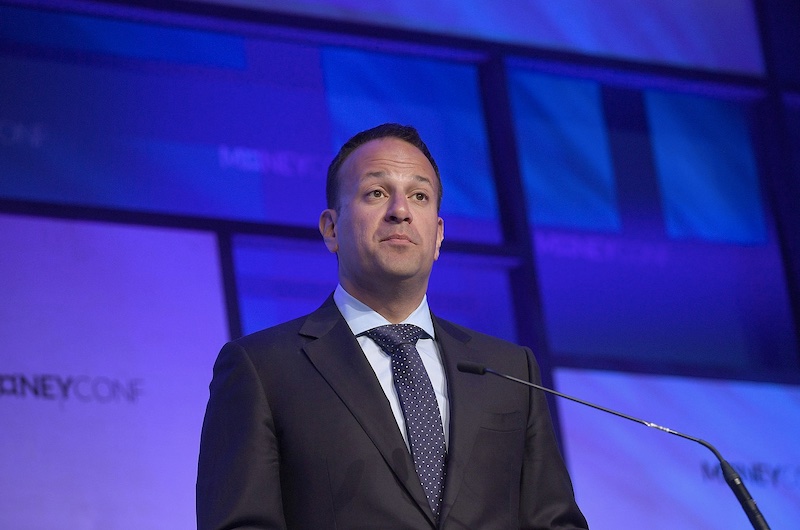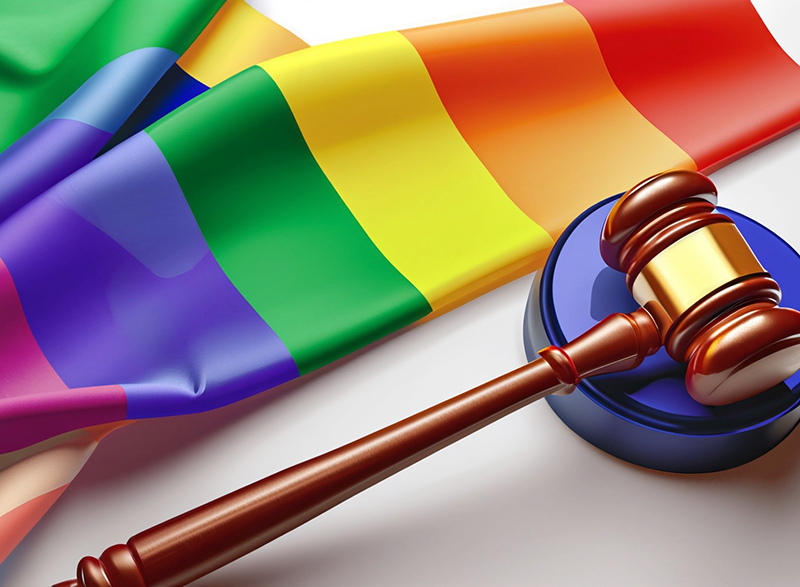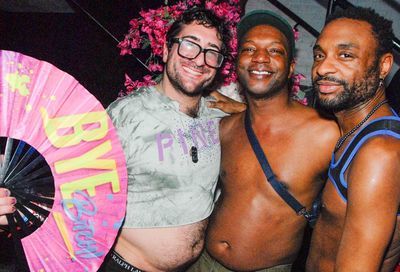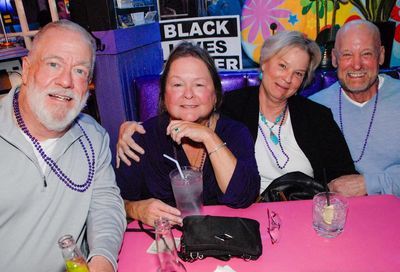Courts nationwide poised for next round in marriage-equality fight
For the first time since the challenge to California’s Proposition 8, starting one week from today numerous federal appeals courts will begin to hear oral arguments in cases challenging same-sex marriage bans from states across the nation.
The latest chapter in the marriage-equality movement comes after a flood of victories in every region of the United States, particularly after the Supreme Court struck down Section 3 of the Defense of Marriage Act last June, with all roads of this latest phase leading to the Supreme Court once more.
On April 10, the 10th Circuit Court of Appeals will hear oral arguments in Kitchen v. Herbert, challenging Utah’s same-sex marriage ban. One week later, on April 17, the same appellate court will hear arguments in a case challenging Oklahoma’s same-sex ban, Bishop v. Smith. On May 13, the 4th Circuit Court of Appeals will hear oral arguments in Bostic v. Schaefer, which is challenging Virginia’s same-sex marriage ban. Oral arguments have yet to be scheduled for a number of cases as well. Sevcik v. Sandoval of Nevada is before the 9th Circuit Court of Appeals and DeLeon v. Perry of Texas is before the 5th Circuit. Four cases — Tanco v. Haslam of Tennessee, Bourke v. Beshear of Kentucky, Obergefell v. Kasich of Ohio and DeBoer v. Snyder of Michigan — are before the 6th Circuit Court of Appeals. In each case a federal judge has found either part or all of state bans on same-sex marriage, or recognition of same-sex marriages legally performed in other jurisdictions, unconstitutional.
Indeed, since the Supreme Court’s sweeping 5-4 decision authored by Justice Anthony Kennedy declaring the federal definition of marriage as between a man and a woman in violation of the U.S. Constitution, three state courts and eight federal courts have sided with same-sex-marriage proponents and universally quoted some aspect of the Windsor decision in their rulings.
“The federal courts are reflecting both that momentum in public opinion and the additional constitutional clarity that came out of our win at the Supreme Court in the DOMA case,” said Evan Wolfson, founder and president of Freedom to Marry.
And more rulings are expected. There are nearly 60 state and federal lawsuits filed in 28 states, plus Puerto Rico, with a total of about 250 plaintiffs. Only five states – Alaska, Georgia, Montana, North Dakota and South Dakota – have no current lawsuits challenging their respective same-sex-marriage bans. Advocates believe that in the next few months even those states will face court challenges. According to the Human Rights Campaign, 90 percent of the cases filed have followed the Supreme Court’s decisions on DOMA and Proposition 8 just 10 months ago.
“The next few months will bring another chapter where we’re going to see federal appellate courts now hearing and ruling on the freedom to marry,” said Wolfson. “It is another stage, another step in this build toward our goal of a successful return to the U.S. Supreme Court to finish the job.”
The deluge of court challenges illustrates a shift of the marriage-equality movement. In 2013, same-sex marriage was legalized in Rhode Island, Delaware, Minnesota, New Jersey, Hawaii and Illinois, following November 2012 wins for same-sex marriage at the ballot box in Maine, Maryland, Washington and Minnesota. And same-sex nuptials resumed in California for the first time since 2008. About 40 percent of the U.S. population now lives in one of the 17 states, plus D.C., that permit same-sex marriage. But with 29 of the states that remain banning same-sex marriage through a constitutional amendment and four through state laws, there has been an uptick in emphasis on legal challenges.
“All of the low-hanging fruit is basically gone in terms of marriage states,” said HRC Vice President Fred Sainz. “You saw the greatest number of states that were possible become marriage states in 2013. Legislatively we are down to basically two states.”
Those states are Indiana, where advocates successfully beat back a constitutional amendment prohibiting same-sex marriage that would’ve gone on the ballot this year; and Nevada, where lawmakers have passed once, and must pass again next year, language that would go on the 2016 ballot repealing the state’s same-sex marriage ban. Electoral battles are also being waged in Oregon, which could see repeal of that state’s same-sex marriage ban on the ballot in November, as well as potential 2016 ballot measures in Arizona, Nevada and Ohio.
“You very quickly see the evolution of the LGBT movement has been one in which we have really constructively strategically looked at the map and seen that from a legislative and an electoral perspective it is going to be increasingly harder to win these marriage battles,” said Sainz. “And it has moved to the courts largely as a result of our victories in Perry and Windsor.”
As the question of the constitutionality of same-sex marriage bans return to federal appeals courts for the first time since the 9th Circuit Court of Appeals found California’s same-sex marriage ban unconstitutional in February 2012, it coincides with a dramatic shift in public opinion. Polls continue to show support for same-sex marriage, as well as LGBT equality, on the rise among every demographic, with opposition reaching all-time lows.
A bipartisan poll conducted by TargetPoint and Greenberg Quinlan Rosner Research and released by Americans for Marriage Equality, a coalition led by the HRC, found 55 percent of voters support marriage equality, including 75 percent of millennials, and just 40 percent opposed. Moreover, the poll found widespread acceptance of gay adoptions and gay parents.
“This is about much more than marriage — these numbers point toward a wide spread and pervasive acceptance of gays and lesbians across a variety of issues related to the family,” said Target Point pollster Alex Lundry, who previously worked for Mitt Romney, in a statement. “And, when people imagine a future with national marriage equality, the picture is far from calamitous: Overwhelming majorities do not believe that more kids will grow up gay, and do not believe there will be more divorce among straight couples. Moreover, they believe it will mean kids with gay parents will have more legal and social protections and that these same kids will be less likely to be bullied. They believe it will be easier to grow up gay and that there will be less prejudice against gay people.”
According to Wolfson, one of the early proponents of same-sex marriage, this shift in public opinion has long been key to the strategy of securing marriage equality nationwide.
“The goal of our movement has to be not just to get to the Supreme Court, but to win at the Supreme Court,” Wolfson said. That day could finally come as early as the high court’s next term, with a decision in June 2015, or it could be years later. It is up to the Supreme Court justices themselves to decide when and which case they will consider. In the meantime, however, Wolfson says advocates must hold steadfast in their focus: “We must convey to appellate judges and the Supreme Court justices that America is ready.”
[Photo: U.S. Supreme Court. Credit: Tim Sackton/flickr.]
Support Metro Weekly’s Journalism
These are challenging times for news organizations. And yet it’s crucial we stay active and provide vital resources and information to both our local readers and the world. So won’t you please take a moment and consider supporting Metro Weekly with a membership? For as little as $5 a month, you can help ensure Metro Weekly magazine and MetroWeekly.com remain free, viable resources as we provide the best, most diverse, culturally-resonant LGBTQ coverage in both the D.C. region and around the world. Memberships come with exclusive perks and discounts, your own personal digital delivery of each week’s magazine (and an archive), access to our Member's Lounge when it launches this fall, and exclusive members-only items like Metro Weekly Membership Mugs and Tote Bags! Check out all our membership levels here and please join us today!






















